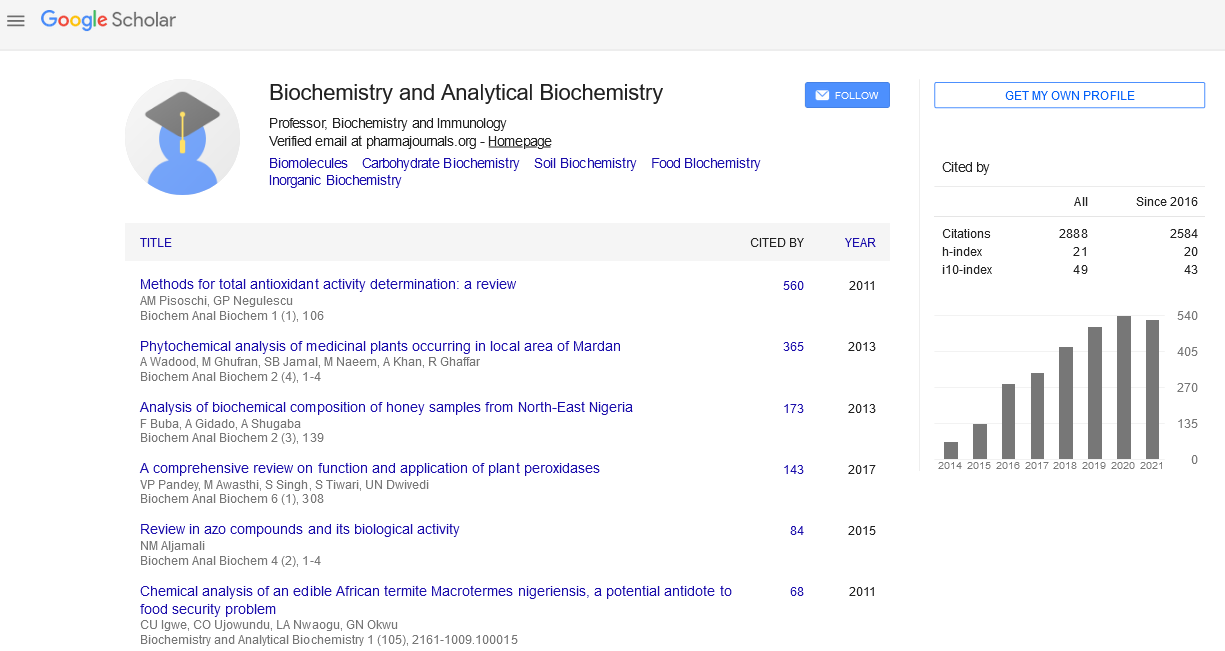Indexed In
- Open J Gate
- Genamics JournalSeek
- ResearchBible
- RefSeek
- Directory of Research Journal Indexing (DRJI)
- Hamdard University
- EBSCO A-Z
- OCLC- WorldCat
- Scholarsteer
- Publons
- MIAR
- Euro Pub
- Google Scholar
Useful Links
Share This Page
Journal Flyer

Open Access Journals
- Agri and Aquaculture
- Biochemistry
- Bioinformatics & Systems Biology
- Business & Management
- Chemistry
- Clinical Sciences
- Engineering
- Food & Nutrition
- General Science
- Genetics & Molecular Biology
- Immunology & Microbiology
- Medical Sciences
- Neuroscience & Psychology
- Nursing & Health Care
- Pharmaceutical Sciences
Abstract
Hyperuricemia and Adverse Pregnancy Outcomes in Ghanaian Women: Potential Mechanism
Ababio GK, Adu-Bonsaffoh K, Botchway F, Abindau E and Quaye IKE
Background: Hyperuricemia has been associated with pre-eclampsia (PE) but limited data exist on the potential mechanism for the association. It is therefore imperative that data is collated for the pathogenic role of urate in PE; hence the focus.
Aim: To investigate the association between uric acid levels and pregnancy outcomes in Ghanaian women.
Methodology: The nested case control study was located at the Obstetrics and Gynecology department of the Korle-Bu Teaching Hospital (KBTH). One hundred and fourteen consented subjects were recruited after ethical clearance was obtained and structured questionnaire administered to them. Four milliliter (4 ml) blood and five milliliter (5 ml) urine samples were taken for biochemical analysis and urinalysis respectively. An automated chemistry analyzer was used to quantify blood chemistry. The data was captured as protected health information (PHI) and analyzed with SPSS version 18.
Results: In pre-eclampsia, patients with hyperuricemia (>360 umol/L) were associated with low birth weight (1033.3 ± 57.7). Among the pregnant women with lesser weeks of gestation (< 34 weeks), PE patients had their uric acid levels elevated, Apgar scores decreased and birth-weight decreased compared to ≥ 34 weeks gestation category.
Conclusion: Increased uric acid levels could generate free radicals that might impair the endothelial system and cause adverse pregnant outcomes.


